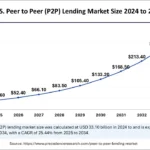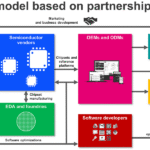1. Earning Power vs. Traditional Accounts
- The national average savings rate is just 0.57% APY
- Meanwhile, top HYSAs offer 4%–5% APY, delivering 7–10× the return
- As Barron’s noted, even in a volatile stock market, cash alternatives like HYSAs offer yields surpassing 4%, making them attractive anchors for safe money .
2. Fed Rate Outlook
- The Fed has paused rate cuts for now, but future cuts could drop HYSA rates Locking in today’s high rates is smart before yields decline.
3. Security & Liquidity
- Most HYSAs are FDIC- or NCUA-insured up to $250K, secure and flexible—ideal for emergency funds, short-term goals, or parking cash safely
📊 Best High-Yield Savings Accounts and Their Rates
Here are the top yield offerings in July 2025:
🔝 5.00% APY – Varo Bank, AdelFi, Fitness Bank
- Varo Bank: 5% APY up to $5K with qualifying direct deposits and account maintenance; standard portion reverts thereafter
- AdelFi, Fitness Bank: Also 5%, with low balance requirements but may include conditions like step counts or initial deposits
🥈 4.66% – Axos Bank
- No minimum deposit required; competitive for those wanting simplicity
🥉 4.60% – Pibank
- Requires online-only setup, with limitations on transfers—suitable for tech-savvy savers .
📈 4.30–4.35% – Newtek, Bread Savings, My Banking Direct, BrioDirect
- Newtek leads at 4.35% with no minimum, followed by several banks around 4.30–4.35%, offering strong returns with minimal access barriers
🧭 How to Choose the Right HYSA
✅ Key Considerations
- APY & Rate Tiering
- Look at both top-tier rates and how much of your balance they cover.
- Requirements & Fees
- Note minimum deposits, direct deposit rules, or balance thresholds.
- Access & Transfers
- Online banks offer easy ACH; some restrict credit/debit usage or transfers.
- Stability & Insurance
- Ensure FDIC/NCUA coverage and check institution reputation.
📌 Additional Tips
- Avoid chasing minor APR gains if it means managing multiple accounts frequently—rotate no more than once or twice a year
- Use your primary checking account for daily needs and a HYSA for backup funds.
- Watch announcements—HYSA rates can shift quickly with economic changes.
📈 Maximizing Income: Sample Earnings
Let’s illustrate with $50,000:
| APY | Yield in 1 Year |
|---|---|
| 5.00% | $2,500 |
| 4.35% | $2,175 |
| 0.57% (avg) | $285 |
Choosing a 4–5% HYSA generates $2,000+ annually—$1,700–2,200 more than average savings.
🏦 Recommended HYSAs in 2025
**
**
Leading Options:
- Varo Bank: Best-in-class rate (5%) for accessible balances.
- AdelFi & Fitness Bank: Also 5%, subject to conditions.
- Axos Bank: 4.66% with no deposit minimum at any balance.
- Newtek Bank: 4.35%, zero minimum, straightforward setup.
- Bread Savings / My Banking Direct / BrioDirect: 4.30%, easy access.
🗂️ HYSA vs. Alternative Cash Options
📉 Traditional Savings / Checking
- Offer near-zero APY (~0.01%), which loses to inflation—move surplus funds out
🔐 CDs & Money Market Accounts
- No-penalty CDs offer fixed rates (~4.5%), good if rates fall. Money Markets are similar to HYSAs in yield
💵 Treasury Bills
- Yields: ~4.3% (3-mo), 4.08% (1-yr). Comparable to HYSA but less liquid .
⚠️ Risks & Limitations of HYSAs
- Variable APYs may decrease if rates fall.
- Balance caps on top-tier rates—e.g., Varo’s 5% only applies to first $5K.
- Withdrawal limits (up to six monthly under Reg D), though rarely enforced now .
- Transfer delays: ACH transfers may take 1–3 business days.
🧠 Smart HYSA Strategy for 2025
- Park emergency and short-term funds in a HYSA with top-tier APY.
- Monitor rates and prepare to switch once or twice yearly if yields drop by ≥0.5%.
- Keep $1–2k in your checking account for convenience, but funnel remaining cash into HYSA.
- Optimize with laddering: use HYSA for short-term needs; consider CDs or T-bills for fixed longer-term returns.
✅ Final Take: Should You Use a HYSA?
Definitely—especially in 2025, when rates are high and Fed cuts may be pending. HYSAs combine:
- Better returns (4–5% APY vs. 0.5% avg)
- Security via federal insurance
- Flexibility with no lock-in


